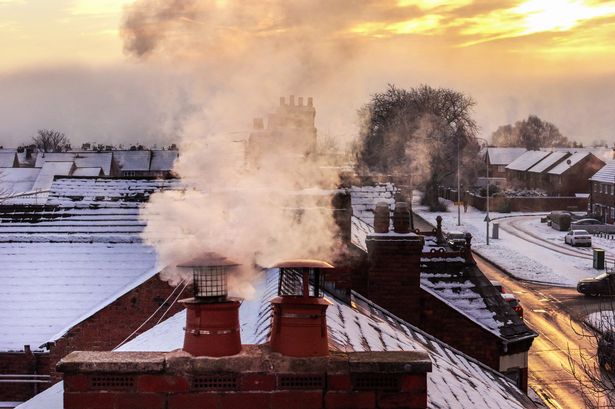The United Kingdom is bracing itself for a significant drop in temperatures, with forecasts predicting a potential plunge to -19°C in some regions. In anticipation of this severe cold snap, government agencies and emergency services have issued advisories urging residents to prepare for disruptions and potential power outages. A central recommendation is for every household to stockpile a minimum of three days’ worth of food and essential medications. This preparedness measure aims to ensure that individuals and families can remain self-sufficient in the event of restricted access to shops, pharmacies, or healthcare facilities due to heavy snow, ice, or other weather-related emergencies.
The three-day supply recommendation focuses on non-perishable food items that require minimal preparation and can be consumed without relying on electricity or gas for cooking. Suggested items include canned goods like soups, vegetables, and beans, as well as dried fruits, nuts, and high-energy snacks like granola bars. Bottled water is also crucial, as freezing temperatures can disrupt water supplies. Equally important is ensuring an adequate supply of any prescription medications, over-the-counter pain relievers, cold and flu remedies, and any other essential medical supplies. Individuals with specific dietary needs or medical conditions should take extra precautions to ensure they have enough specialized food and medications to last for several days.
This preparedness campaign underscores the potential impact of extreme weather events on daily life. The projected sub-zero temperatures are expected to bring not only widespread frost and ice but also the possibility of heavy snowfall, which can severely disrupt transportation networks. Roads may become impassable, train services could be cancelled, and airports might experience delays or closures. These disruptions can isolate communities and limit access to essential supplies, highlighting the importance of individual preparedness. Beyond food and medicine, the government also recommends having a supply of torches, batteries, warm blankets, and a first aid kit to manage any unexpected situations arising from the cold weather.
The emphasis on individual preparedness stems from a broader strategy of resilience in the face of increasingly frequent and intense weather events. Climate change is contributing to more volatile weather patterns, including colder winters and more extreme temperature fluctuations. By encouraging individuals to take responsibility for their own short-term needs during emergencies, the government aims to reduce the strain on emergency services, which can be overwhelmed during periods of extreme weather. This approach empowers communities to cope with initial disruptions, allowing emergency responders to focus on the most vulnerable and those requiring urgent assistance.
Beyond individual preparedness, the government and local authorities are also implementing measures to mitigate the impact of the cold weather. These efforts include gritting roads to minimize ice-related accidents, providing emergency shelter for homeless individuals, and working with utility companies to ensure the stability of the power grid. Public awareness campaigns are also in full swing, providing information on staying safe during cold weather, recognizing the signs of hypothermia, and avoiding unnecessary travel. Schools and businesses are developing contingency plans for potential closures or disruptions, prioritizing the safety of students and employees.
The overarching message is one of cautious preparedness and community resilience. While the extreme cold snap presents challenges, taking preventative measures can significantly reduce the risks associated with severe weather. By preparing in advance, individuals can ensure their own well-being and contribute to a more resilient community response to the challenges posed by the impending cold spell. The combined efforts of individual preparedness and coordinated government action aim to minimize disruption and ensure the safety and well-being of everyone throughout the anticipated period of extreme cold.














